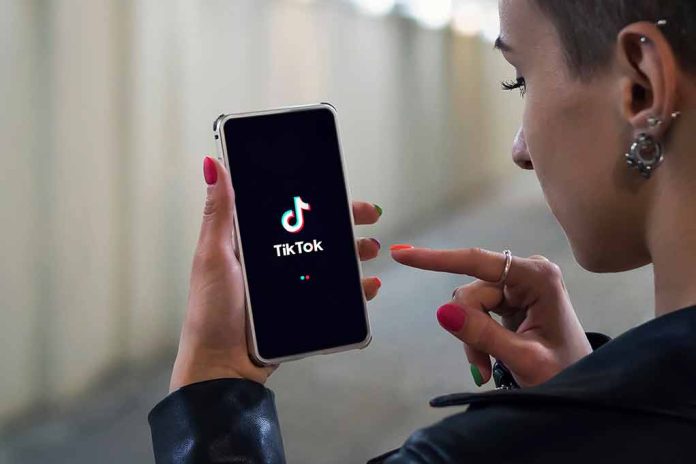
As the U.S. Supreme Court deliberates on a decision that could end TikTok’s presence in America, free speech and national security hang in the balance.
At a Glance
- The Supreme Court is reviewing legislation that could effectively ban TikTok in the U.S. over national security concerns.
- TikTok may shut down on January 19 unless the Supreme Court blocks the law.
- ByteDance, TikTok’s parent company in China, must divest from TikTok due to the law.
- Justices acknowledge potential free speech issues but weigh them against national security risks.
National Security Versus Free Speech
The U.S. Supreme Court is at a pivotal juncture in deciding a case that pits the freedom of expression against national security concerns. With the legislated deadline approaching fast, TikTok’s future in the U.S. remains uncertain. The primary issue at stake is whether ByteDance, the Chinese company that owns TikTok, should divest from the platform due to its ties with Chinese intelligence.
This legislation, signed by President Biden and receiving bipartisan support, mandates ByteDance to sell TikTok. The Biden administration views TikTok as a national security threat because of its data collection capabilities, albeit without evidence of misuse by China. An appellate panel earlier upheld this ruling, dismissing First Amendment challenges.
The Supreme Court will hear oral arguments today in the case involving the future of TikTok in the U.S., which could ban the popular app as soon as next week. https://t.co/GZ0heY5BNE
— NBC DFW (@NBCDFW) January 10, 2025
Potential Economic Fallout
If enforced, this law would disrupt the platform’s operations across the U.S., affecting millions of users and advertisers. Entrepreneurs and content creators like Skip Chapman and Lee Zavorskas, who depend on TikTok for revenue, face financial uncertainty.
Justice Brett Kavanaugh remarked, “That seems like a huge concern for the future of the country,” highlighting the economic repercussions of this ruling. Meanwhile, TikTok is actively seeking a preliminary injunction to stave off the mandated sale.
TikTok has more than 170 million users in the U.S. alone. The potential ban poses a challenge to freedom of speech, drawing public concern. Justice Neil Gorsuch questioned the constitutionality of the ban, asking if “the best remedy for problematic speech is counter speech.”
The clock is ticking for TikTok. The Supreme Court will hear arguments today to determine whether a ban against the popular social media app restricts free speech and violates the First Amendment. https://t.co/rCgwNvZJkW
— The Boston Globe (@BostonGlobe) January 10, 2025
Judicial Perspectives and Next Steps
Chief Justice John Roberts addressed Congress’s findings, highlighting ByteDance’s obligations under Chinese law. A Supreme Court decision will determine the scrutiny level applicable to this law, with strict scrutiny being the highest standard. ByteDance asserts that TikTok’s algorithm is integral, complicating a potential sale. The looming January 19 deadline presses the court to conclude in time.
While the Supreme Court’s decision holds significant implications for free speech and national security, the Biden administration maintains that “no one can seriously dispute that (China’s) control of TikTok through ByteDance represents a grave threat to national security.” The decision could reshape the framework for foreign tech entities operating in the United States.


